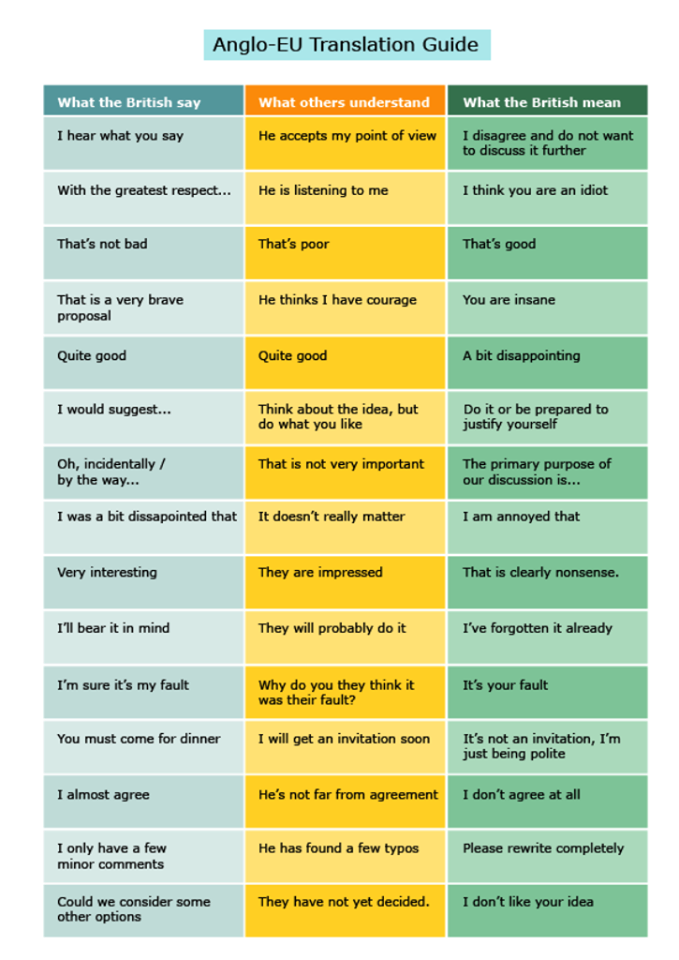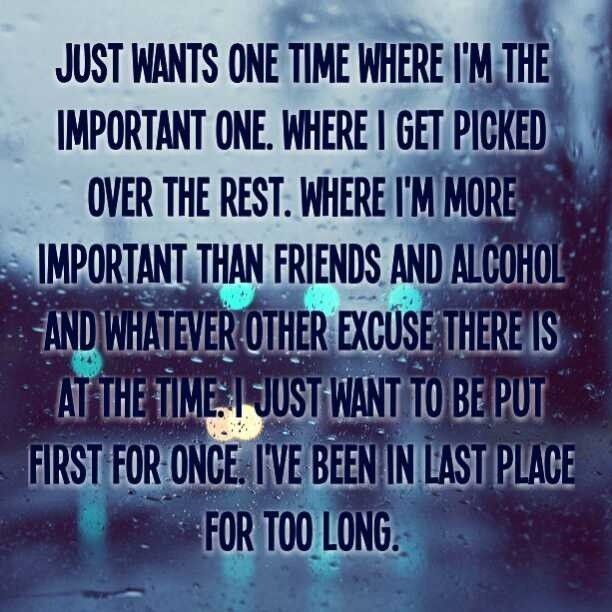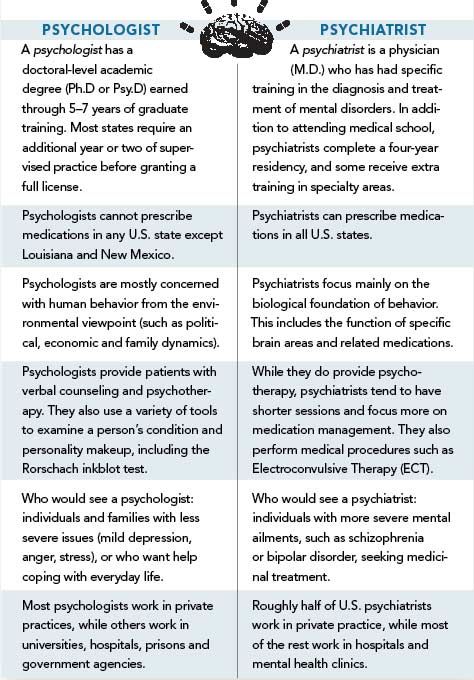Accepting and loving yourself
Accepting & Loving Ourselves in 10 Simple Steps
“Why compare yourself with others? No one in the entire world can do a better job of being you than you.” ~Unknown
The idea of loving yourself often seems cliché. We throw around the phrase, but do we really understand what it means? Do we actually know how to love ourselves? Or what the process of self love even looks like?
I really believe that everything in our lives is directly affected by how much we love ourselves, but I’m often at a loss for words when trying to articulate what is really all about. In my attempts to answer these questions, I am excited to have come up with a little analogy that I feel really pulls it all together. So I figured I’d share, in the hopes that you all can explore and expand on this concept with me.
To start, think of people are like cars. In order for a car to function properly you need to fill its tank with gas. So in order for us to feel as centered, loving, and grounded as we’d like, our “love tanks” need to be full.
When our love tanks are full, we have the energy and patience to give love to the world around us; but when we are running on empty, that’s how we feel: empty.
With an empty love tank, we feel overwhelmed, frustrated, angry, sad, you name it. And that’s how we treat others, which can ultimately lessen their love tanks too.
If you think about the people you know and love, and make a mental image of their love tanks, how full do they seem to you overall? If you look at yours, in this moment, how full is it?
Remember our love tanks have the potential to shift throughout our days and lives.
So how do we fill our love tanks?
Many people go for the quick fix; we find some temporary external source to fill our love tanks with, to get rid of the yucky feeling that comes with an empty love tank.
We go to the fridge, get a drink, call up an ex, smoke a cigarette—anything that gives us a temporary high and a feeling of relief from the discomfort from an empty love tank (which ultimately ends up emptying out even more, starting the cycle all over again).
Sometimes we go for more “positive fillers” that may seem to be what we need: giving to others, being social, getting love from someone else. These may not be as detrimental as the previously mentioned fillers, but they still make us dependent on an external source to fill our tanks.
So how do we fill our love tanks?
The answer is simple: with love.
Seems obvious, right? So why is it so hard to do? Unfortunately, our schools didn’t teach us to process of self love, and as humans, it doesn’t happen naturally, so it’s not surprising that we don’t necessarily know how to do it.
The first thing we need to do is decide whether we actually believe we are lovable.
Most people feel that only “certain parts” of themselves are lovable. For example, “my kind, happy self is lovable, but my sad, lonely self needs to stay hidden away, because no one would love that part of me.” This is where the process of self-hate actually starts depleting the love tank.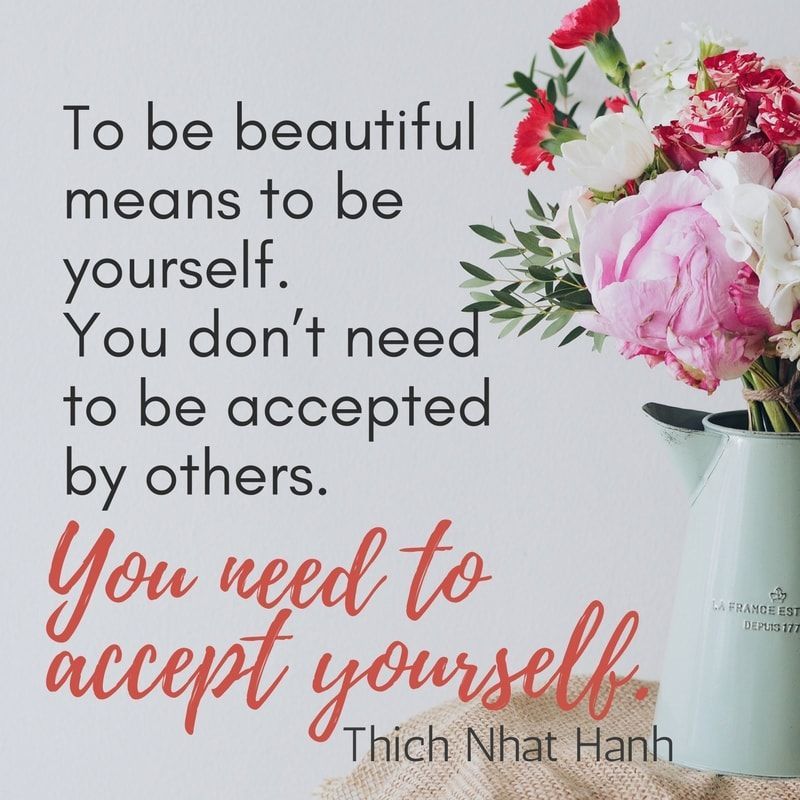
We do it unconsciously all day, every day. Just pay attention. Any time we are comparing, judging, or simply being negative we are depleting our love tanks, which makes us feel bad, and therefore makes us want to do it more. So how do we get out of this pattern?
First we need to realize we are in it, and we have no control over it.
What do I mean we have no control over it? Turn off your thoughts for a solid minute and don’t think of anything. Doesn’t work, right? Why? Because our minds have a “mind” of their own. They simply run on the “programs” that were “installed” in them during our childhoods.
Each of us have different types of mind chatter (and feelings), because we all had different life experiences that created them. Taking the time to learn about the chatter of our minds is what psychology is all about, and something I highly recommend we all do for ourselves.
But at some point we need to learn how to get beyond that chatter and get it to chill out.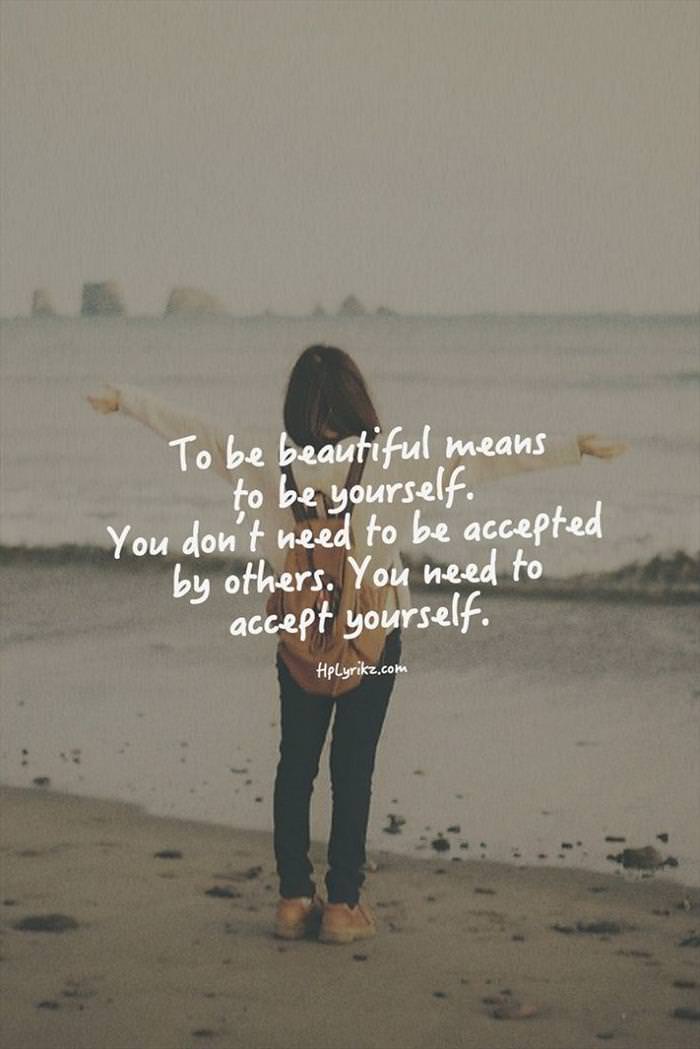 Through the practice of self observation we begin to see and understand the chatter of our minds; and with some work, we can learn how to better deal with it, which ultimately is the process of self love.
Through the practice of self observation we begin to see and understand the chatter of our minds; and with some work, we can learn how to better deal with it, which ultimately is the process of self love.
So here are a few practices of self love that I find helpful when trying to fill our love tanks with what they really need:
- Validate our feelings, “It’s okay to feel bad sometimes.”
- Refrain from judging or placing negativity on our thoughts or feelings.
- Give ourselves a little extra comfort and soothing.
- Listen to and respect our inner experience.
- Reassure ourselves that what we are experiencing will pass.
- Remind ourselves of all the wonderful things that we are.
- Be grateful for the little (and big) things in our lives.
- Take action towards improving elements in our lives that negatively affect us.
- Commit to our physical health—cut back on drinking, improve eating habits, and exercise regularly
- Invest in our psychological/emotional/spiritual health.

All of these things take time and effort and don’t happen without some intention and inner work. But it’s worth starting, in at least one small piece today. How do you refill your love tank?
Photo here.
About Jasmin Tanjeloff
Jasmin Tanjeloff, LMHC is a licensed psychotherapist. She integrates psychology with eastern practices to help people minimize anxiety, sadness, body image concerns, work difficulties & relationship issues to feel balanced, peaceful & empowered. To schedule a session visit www.JasminBalance.com.
See a typo or inaccuracy? Please contact us so we can fix it!
How To Love Yourself: Pursuing Self-Acceptance & Forgiveness
From accepting your emotions to coming to terms with your past, self-love is a journey that can be difficult and vulnerable. It’s not like you can just flip a switch or light yourself a self-love candle and suddenly years of hypercritical parenting, toxic thoughts, or traumatic experiences just melt away.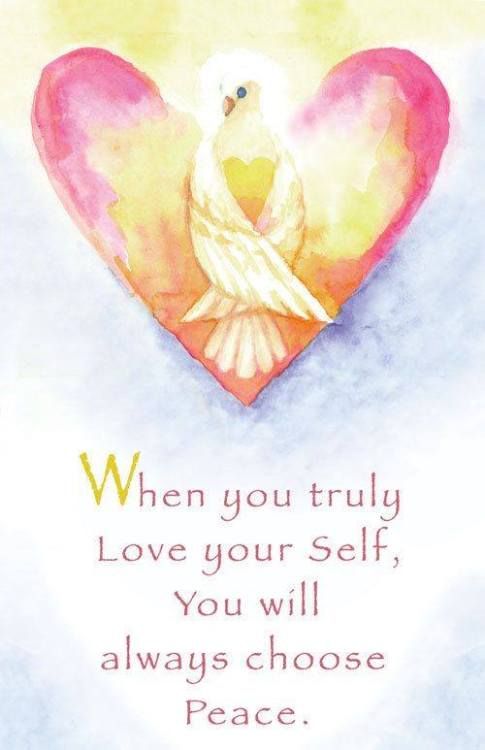
If you struggle to love yourself, you’re not alone. You know yourself more intimately than you’ll ever know anyone else — which means you are hyperaware of your every flaw, every passing thought, and every wrong thing you’ve done.
If you’re tired of being your own worst enemy and are ready to feel happy living in your skin, we’re here to share a few secrets about what that journey looks like.
You don’t need to walk this path alone – we’re here to help. Call Ellie Mental Health to get matched with a therapist near you.
A Quick Note About the Self-Love Journey
When we talk about learning to love ourselves, we often imagine it’s a lot like falling in love for the first time. In one magical moment, you’ll break free from self-hate and people-pleasing tendencies and arise from the ashes as a more enlightened, blissful version of yourself.
However, loving yourself is more like a long hike that requires a whole lot of perseverance and grace along the way.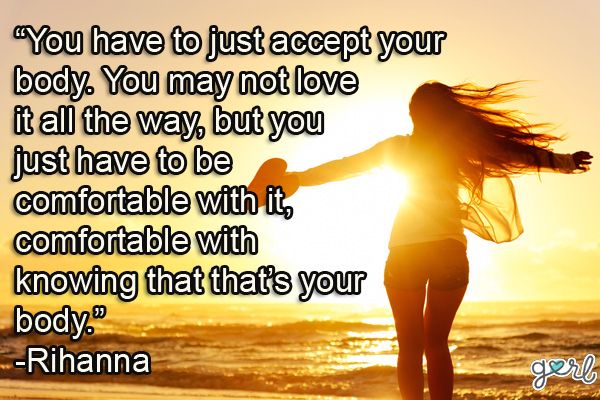 It means facing your demons head-on and doing the hard work of processing the hard things that have happened in your life. It means breaking down the lies you’ve been telling yourself for years and making difficult decisions about what and who you decide to keep in your life. And most importantly, it’s a journey we take every day for the rest of our lives.
It means facing your demons head-on and doing the hard work of processing the hard things that have happened in your life. It means breaking down the lies you’ve been telling yourself for years and making difficult decisions about what and who you decide to keep in your life. And most importantly, it’s a journey we take every day for the rest of our lives.
Loving yourself is hard and honestly kind of scary. Sometimes it’s easier to just fall back into patterns of self-destruction and to continue vying for other people’s approval. But if you’re reading this, it’s safe to say that you’re done settling and are ready to give yourself the love and care you need.
How to Love Yourself and Be Your Authentic Self
Loving yourself is a rewarding journey. It can be so draining to always feel like you need to put on a show and be the “best” version of yourself. However, by discovering your authentic self and coming to accept and love the true person that you are, you’ll finally be free to live life on your terms and can feel at peace in your mind.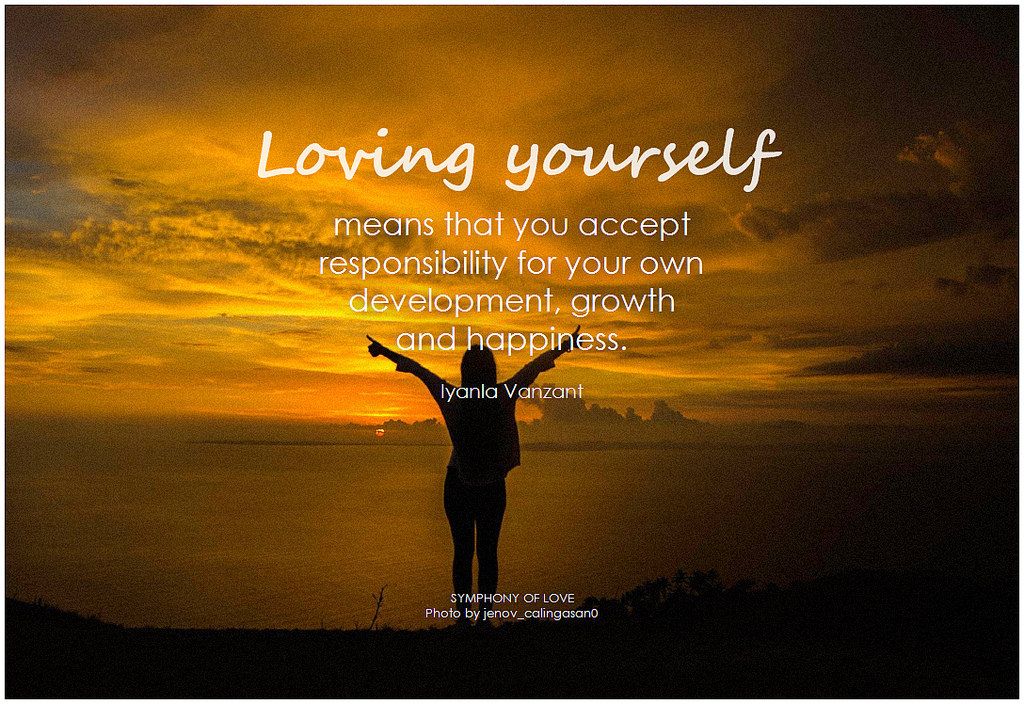 Here are a few tips for how you can love yourself better.
Here are a few tips for how you can love yourself better.
Comparing Yourself to Others Less
It’s our natural tendency to compare ourselves to others. We often evaluate the people we interact with or see on social media to define ourselves and assign ourselves value.
It’s unlikely you’ll ever be able to stop comparing yourself to others completely. However, if you constantly find yourself scrolling on social media or looking at others at the gym and wishing you could be more like them, there are a few things you can do.
First off, you can identify your triggers. If you know that any time you go on social media you end up seeing a post that makes you feel unhappy with yourself, then limiting how much time you spend scrolling through your Instagram feed can be a significant first step.
Second, a little bit of gratitude can go a long way. If you can reflect on things about yourself and your life that you’re grateful for every day, you’re less likely to get hung up about the things or traits you wish you had.
Acknowledging Your Feelings
Your emotions aren’t something you need to run and hide from – even if they’re negative. You can feel sad, angry, or disappointed. An important key to loving yourself is allowing yourself to feel all the feelings. Instead of trying to ignore or push away hard emotions, you can learn to feel at peace with your emotions and accept them as they are.
You might find that the more you try to fight your negative emotions the more unbearable they become. On the opposite side, if you can recognize and accept what you’re feeling, you’re less likely to rely on unhealthy coping mechanisms and get angry or ashamed for feeling upset. Instead, you can focus on processing how you’re feeling and giving yourself the care you need.
Knowing Perfection Is Impossible
If you’re always striving for perfection, you’ll never feel satisfied. Perfection is impossible. While there’s nothing wrong with pushing to be the best version of yourself, fighting to be perfect and tearing yourself down when you make a mistake will leave you unsatisfied, self-critical, and ashamed.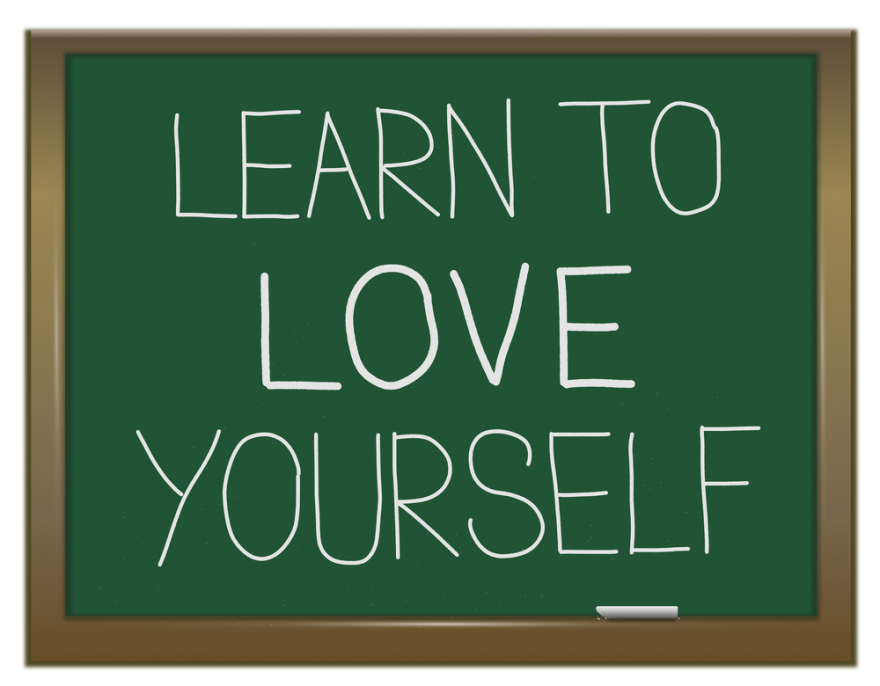 And you might tend to stick with the things you know you’re good at instead of taking the risky venture of trying new things – because making mistakes are bound to be a part of the learning process.
And you might tend to stick with the things you know you’re good at instead of taking the risky venture of trying new things – because making mistakes are bound to be a part of the learning process.
Perfectionism is often deeply entwined with the need to perform for the approval of others and to feel accomplished. And at the root of that need is a deep fear of shame. To love and accept yourself as the flawed, imperfect person that you are, it takes realizing that your worth lies in more than what you can achieve and that happiness isn’t unlocked by not making mistakes.
Keeping Good Company
The people you choose to surround yourself with have a direct impact on the way you think about yourself and others. If your friends and family members are constantly judging others, putting you down, or flaunting their accomplishments, you might struggle to maintain the progress you’ve made.
Loving yourself also means setting boundaries and cutting out toxic people from your life. This isn’t an easy step in your journey, but it’s a necessary one. If you keep getting hurt because there are people in your life who consistently treat you poorly, you to evaluate if those people should still have a part in your life. Additionally, it’s important that you learn it’s okay to say no to people and that you don’t need to wear yourself thin trying to please others.
This isn’t an easy step in your journey, but it’s a necessary one. If you keep getting hurt because there are people in your life who consistently treat you poorly, you to evaluate if those people should still have a part in your life. Additionally, it’s important that you learn it’s okay to say no to people and that you don’t need to wear yourself thin trying to please others.
Forgiving Yourself and Releasing Shame
Chances are you’ve done some things in your life you’re not proud of. People are capable of doing really messed-up things, and you’re no exception. If you’ve hurt someone you’re close to or are ashamed of something that happened in the past, you might carry a heavy load of shame and guilt with you. This deep shame can lead to low self-esteem, depression, self-hate, and self-destructive behavior.
Feeling guilty for something you’ve done wrong is a normal, healthy reaction. It’s important that you recognize that you’ve done something wrong, and the uncomfortable feeling of guilt can lead you to repair the situation and avoid the same hurtful actions in the future. Shame, on the other hand, involves how you perceive yourself. Rather than thinking “I did something bad” you might tell yourself. “I am bad.”
Shame, on the other hand, involves how you perceive yourself. Rather than thinking “I did something bad” you might tell yourself. “I am bad.”
Forgiving yourself doesn’t mean that you’re letting yourself off the hook. It’s the exact opposite. Rather than ruminating over what happened, trying to justify your actions, or living in shame, you’re choosing to take responsibility for the action and accept that what you did was wrong. From here, you can express remorse, make amends, learn from the mistake, and strive to do better.
Get Support Along the Way From a Therapist
If you get stuck in your self-love journey, connecting with a therapist can help. At Ellie, we think that underneath all the layers, you – and we mean the real, authentic you—are pretty freaking awesome. At Ellie Mental Health, we want you to feel cared about, safe, and accepted. We get that loving yourself is hard, and how you feel and think about yourself is closely connected to your mental wellness.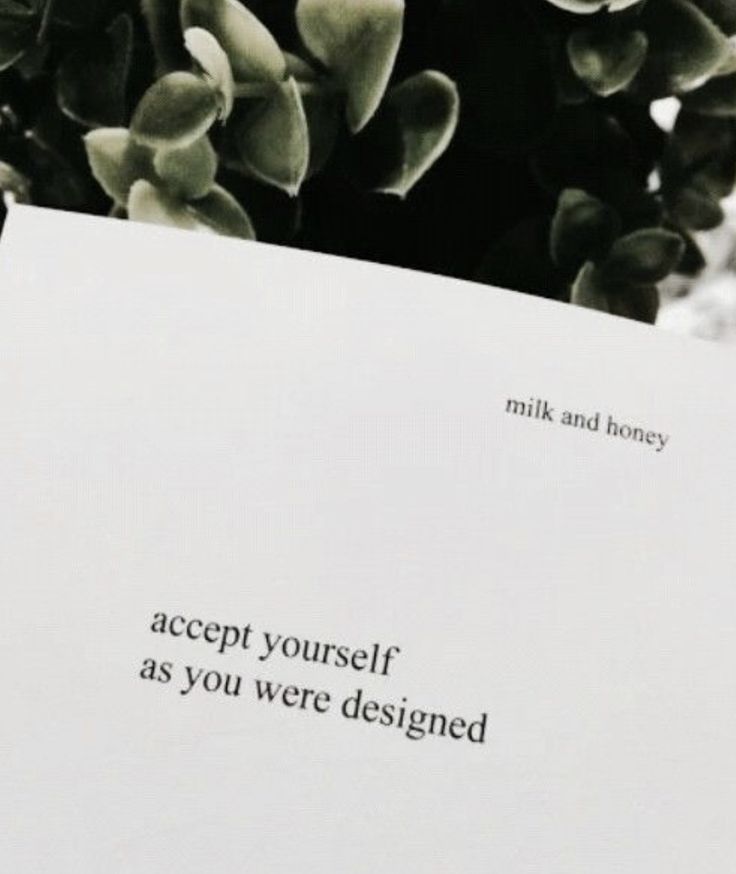 That’s why we’re here. We’ll walk through the muck with you and help you discover a life you love.
That’s why we’re here. We’ll walk through the muck with you and help you discover a life you love.
Are you ready to break free and fall in love with your authentic self? Call Ellie today to find a mental health provider that fits your needs.
How to accept and love yourself: 10 simple steps
Love
In November 2020, the Dove brand, together with VTsIOM, conducted a study in which it found out that 94% of young girls would like to change something in their appearance . That is, almost every respondent is dissatisfied with herself!
If you are one of the majority, don't worry: self-love is something that can be learned . Our family, friends, social networks and media most of all influence the attitude towards ourselves, form this culture. If you have a lot of requirements and assessments in your relationship with yourself, and you want to change this, then the following steps will help you 👇
Psychologist, conflictologist, head of the Center for Settlement of Social Conflicts
1.
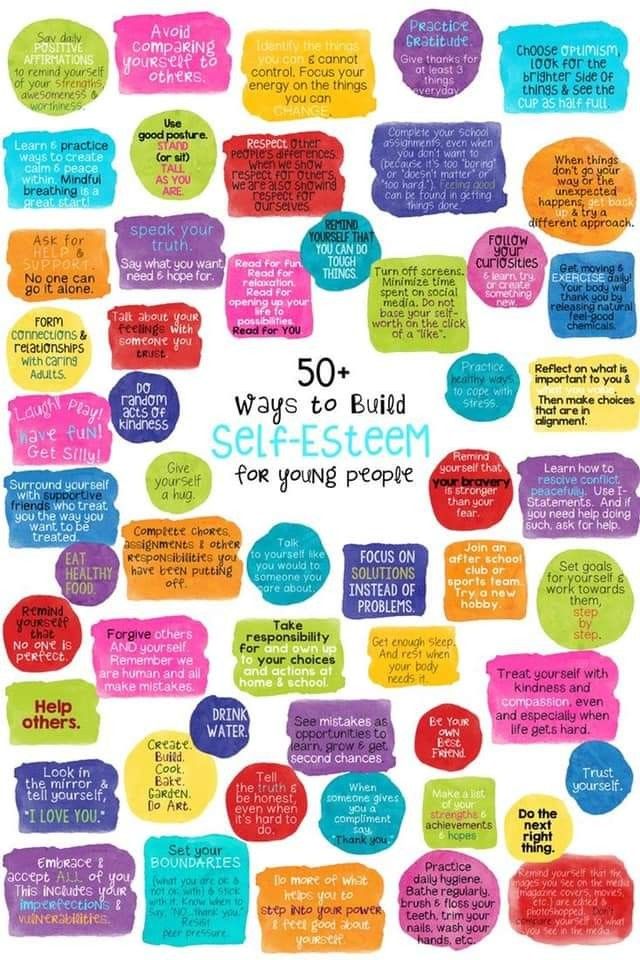 Stop comparing yourself with others
Stop comparing yourself with others Understand that all people are individual, everyone has their own strengths and weaknesses. So, someone is good at one thing, and someone is good at another. In addition, try to become independent of other people's ratings . It is not so important what others think about you - your own assessment of what is happening is much more important.
2. Avoid contact with toxic people
It's hard to love yourself when people around you constantly say nasty things and thereby lower your self-esteem. Try to distance yourself from them at least for a while.
Root Therapy Consultant, Psychologist
3. Find Your Mind
There is a good exercise in accepting your body. Take a mirror and take a close look at your face. Look for what you like. Maybe you have defined cheekbones, a straight nose, or beautifully shaped ears. At first, imperfections will be evident. This is fine. But your task is to train your brain to look for raisins in these imperfections that no one else has. You don't like and don't like everything about yourself, but maybe you have a cool bang? Love yourself! Start with one little detail that you think is pretty. And every day increase the “dose” of sympathy for yourself. The ability to switch attention from the negative aspects of life to what you like is a very important life skill.
This is fine. But your task is to train your brain to look for raisins in these imperfections that no one else has. You don't like and don't like everything about yourself, but maybe you have a cool bang? Love yourself! Start with one little detail that you think is pretty. And every day increase the “dose” of sympathy for yourself. The ability to switch attention from the negative aspects of life to what you like is a very important life skill.
Watch the film "Beauty in the head" . In it, the main character was very worried about her appearance, could not accept herself, fall in love. But when, by chance, her focus shifted, her whole life changed!
Psychologist, art therapist, resource coach
4. Focus on your strengths
If you constantly think about your shortcomings, you form a false image. The brain exaggerates, drawing horror films that do not exist in reality. What to do?
Take 2 sheets of paper. On one write down all your strengths. Highlight the main ones, those that you are truly proud of. On the second sheet, write down the negative sides. Those that adults usually point out to you or that bother you personally, and rewrite them in a positive way. For example: “Everyone says that I constantly walk around with a “sour face” and depression” - “I can experience any emotions, because they help me focus.” Or "I'm not a good student" - "I study easily, quickly memorize the material and enjoy the lessons."
On one write down all your strengths. Highlight the main ones, those that you are truly proud of. On the second sheet, write down the negative sides. Those that adults usually point out to you or that bother you personally, and rewrite them in a positive way. For example: “Everyone says that I constantly walk around with a “sour face” and depression” - “I can experience any emotions, because they help me focus.” Or "I'm not a good student" - "I study easily, quickly memorize the material and enjoy the lessons."
5. Keep a diary of success
This is a technique suggested by Bodo Schäfer in his book Mani the Dog.
Keep a beautiful diary and write down even small victories during the day every evening. Learned a difficult rule for the exam, went on a date with the same guy, walked the dog in the rain and slush? Well done! Remember that you are, by the fact of birth, a miracle of nature! You are the most beautiful person on Earth, if only because out of a thousand spermatozoa, the Universe has chosen you! A success diary will help you focus on your strengths and raise your self-esteem .
Psychologist
6. Learn to praise yourself
Notice in yourself what you like. Make it a habit at the end of each day to remember five moments in which you are satisfied with yourself. Situations that you can be proud of. It can be the most insignificant things - a witty answer, a beautiful hairstyle. Say them while complimenting yourself, for example: “I like myself today for ...”, “I am pleased with myself today because ...” and so on.
Experiment with this exercise for seven days and observe how you feel. It will help form the habit of paying attention to yourself and noticing the good.
7. Voice your desires
Observe how often you talk about your desires, about your feelings. How often do you say from the I-position: “I want…”, “I think…”, “I like…”, “I feel…”. Try to formulate phrases in this way, expressing your point of view, your desires.
Address yourself with questions: “What do I think about this? Do I want it or don't I? Do I like it or don't I like it?" This approach will help you to hear and understand yourself better, to speak more boldly about your desires and feelings.
8. Have a day of love with your friends
Tell or, better, write to each other what you appreciate and what you like about each other. Such words will be valuable for each of you and your friends will note the qualities and traits that you did not even think about.
9. Give yourself gifts
Treat yourself. Just like that, for no reason! Not for achievements, but simply because you have yourself. After all, you are the most important!
Certified psychologist, coach, personal growth coach and sexologist
10. Understand, accept, care
Self-love consists of three stages: understanding, acceptance and care . They don't just follow each other in that order. First of all, our task is to get to know ourselves. You can't love yourself until you learn.
-
First understand that perfect people do not exist . Every person has both good and bad.
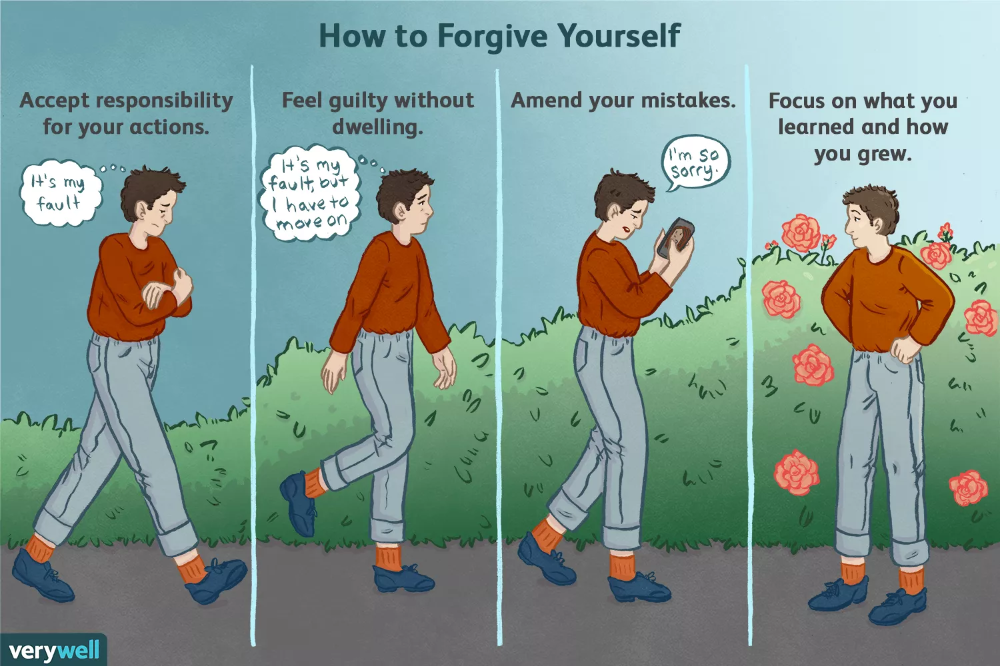
-
Realizing his light and dark sides, a person begins to accept them . To do this, it is important to remember that there are no ideal people. Having different qualities is normal, especially since there is a positive side to each trait. For example, laziness protects us from overwork, while aggression signals that our personal boundaries are being violated and helps protect them.
-
Next comes the self-care step . When you already know and accept your whole self, you begin to feel your desires and try to satisfy them. For example, everyone advises after school to enter the Faculty of Law, but you feel that this is completely “not for you”. The concern in this situation is to explain your position to relatives and tell them that you want to become, for example, a doctor or a programmer. Be sure to ask them for support, and if you get a refusal, think about how you can support yourself. The better you learn to do this, the less you will depend on the opinions of others.
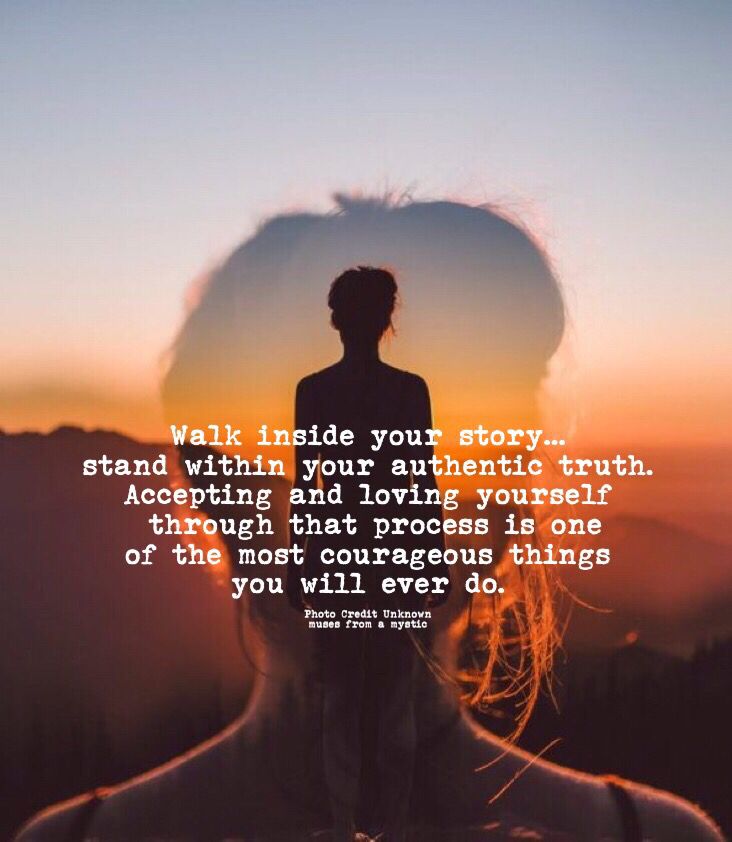
Alisa Karpenko
Tags
- Psychology
- Love for yourself
- About love
How to love yourself by accepting your body
54 414
List no less important than physical condition. Anxiety, fears, a constant desire to prove something to ourselves and others - this is a false facade behind which we cover up problems.
These problems can and should be solved in order to finally give yourself the opportunity to simply live without envy and worry in vain, feeling joy inside as an endless source of energy.
The search for the meaning of life is one of the signs that not everything is in order. For a harmonious person, meaning appears by itself - from feelings, sensations and experiences. But inner harmony will not arise by itself. The basis for it can either be laid down in childhood or developed already in adulthood.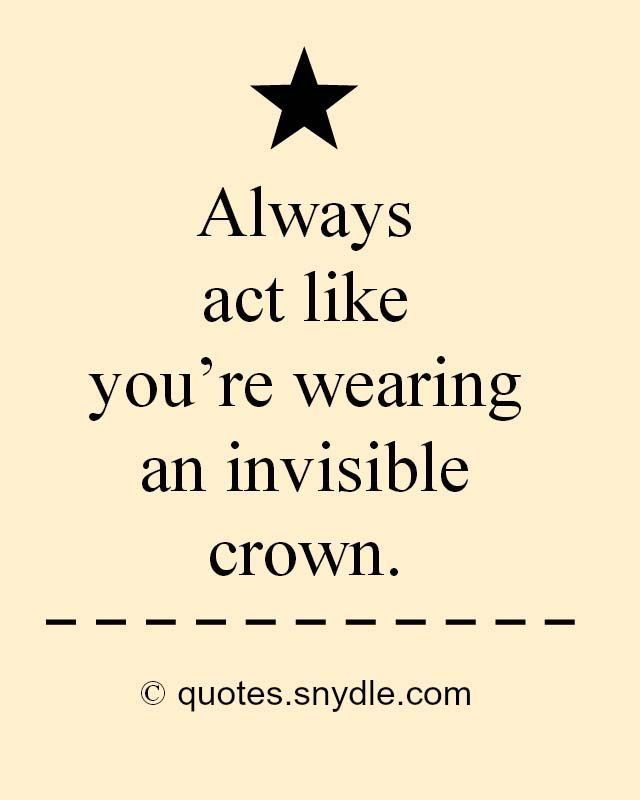 The second option will require conscious effort.
The second option will require conscious effort.
In childhood, our emotions, desires and feelings are most vivid and pure. During this period, the foundation of all future life is formed. However, during these years we are not independent: we depend on parents, relatives, educators and older comrades.
If a child was denied support and love, if he did not have an outlet, there was no way out for negative emotions — and in childhood everything is very bright, even pain — then such an onslaught on the child's "I" will lead to the appearance of protective mechanisms of the psyche. A strong but unreal "I" is formed, with which the child hides from the world.
The real "I" remains lonely and not appreciated by anyone, which gives rise to many internal conflicts
Having lost his "I" behind a pile of masks, a person begins to prove to himself and others the significance of a false, unreal self in all possible ways.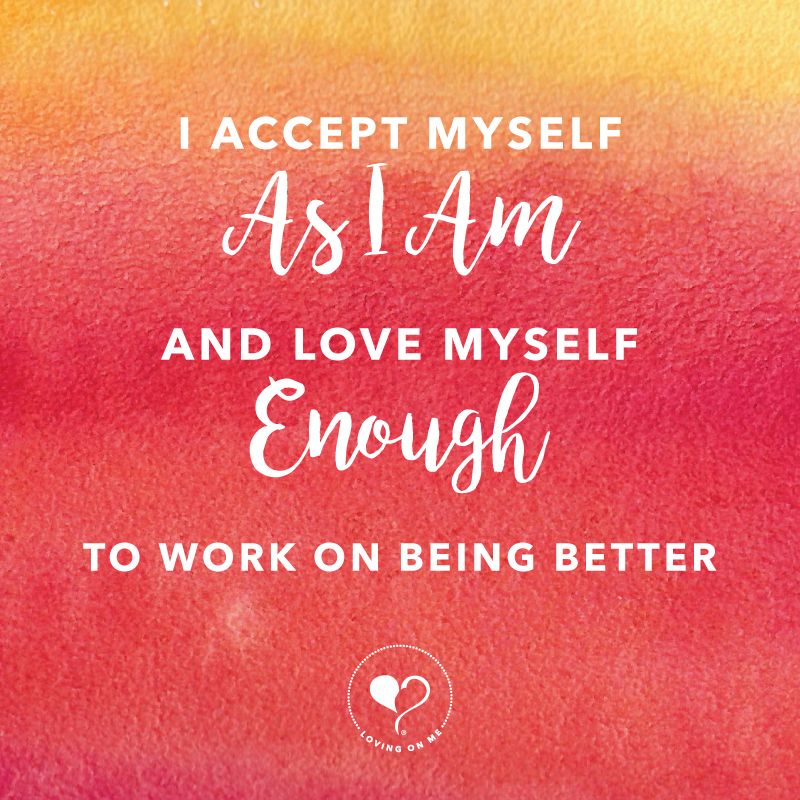
At the same time, the real "I" remains lonely and unappreciated by anyone, which gives rise to many internal conflicts. Therefore, external success is often associated with severe internal pain.
The problem is aggravated by the fact that even having subjugated those around him, having created a seemingly favorable environment around himself, a person with a true "I" driven inside will not be able to receive true love from others until he loves himself.
The ability to feel, love and accept yourself is the basis that allows you to subsequently love someone else and accept love from others.
Without accepting ourselves, we block the source of our own feelings, replacing them with gray fakes. As a result, we destroy both our own personality and the personality of those around us.
At the same time, we feel pain all the time, but it is driven inside, and then makes us hurt others.
This circle is endless, and there is only one way out of it - love.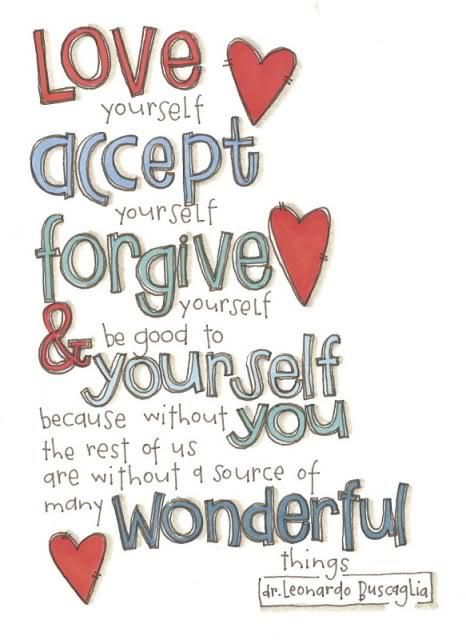
To love means to allow yourself to be yourself. Remove false identities, abandon the protection built up over the years, accept your loved ones, find those who value you, and not your masks. Reclaiming love is no easy task. But the result is worth any effort. I propose to do an exercise from bodily therapy, which will help you learn to respect and love yourself and your body. This is a practice based on the exercises of Alexander Lowen.
1. Appreciate your body
Divide a piece of paper in half to make two columns. On one side, list 20 things you value about your body: long neck, strong shoulders, thick hair, good digestion, strong arms, large breasts, good eyesight, great coordination, dainty fingers, etc.
If not you can list 20, write ten. If this is a lot, then write five. And if it is difficult to list at least five, find at least two features (but no less).
Once you've done that, in another column, write just one thing that you don't like about your body.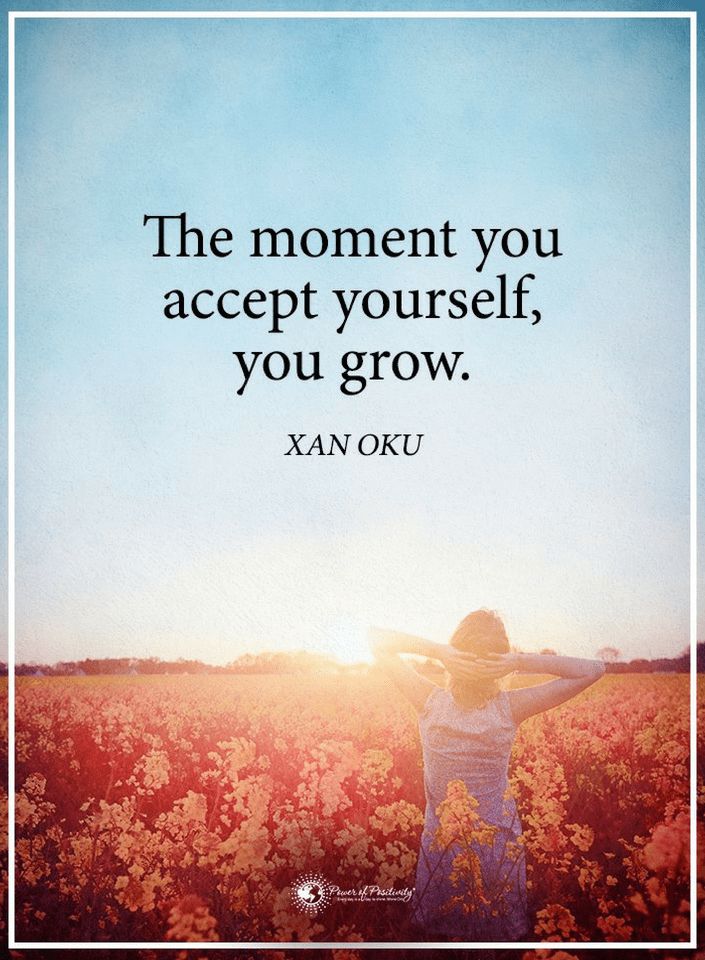 Take a look at your list. And allow yourself to appreciate the body more than to condemn.
Take a look at your list. And allow yourself to appreciate the body more than to condemn.
2. Exhaust negative thoughts
If you find it difficult to create such a list, make a positive statement about your body, even if it seems strange: for example, "I love my stomach." Then write down each critical statement to the contrary until you exhaust all negative thoughts.
Having done this, repeat the positive statement and try to add another one to it.
3. Rediscover your body
Close your eyes and carefully run your thoughts through your body from top to bottom and bottom to top. Is there a part you skipped too fast? Is there anything you have rejected and not included in your body image? Is there an area that you don't feel, perhaps not even knowing that you have rejected it?
Is there anything that you don't like and call disgusting or unpleasant? Pay attention to this area. Does it have a distinctive feature: color, sound, sight, temperature, structure, density, tension, or any other sensations?
4.

